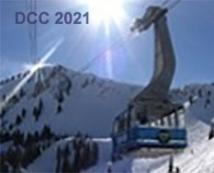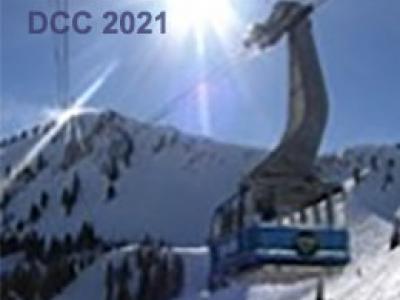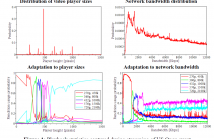
DCC 2021Virtual Conference - The Data Compression Conference (DCC) is an international forum for current work on data compression and related applications. Both theoretical and experimental work are of interest. Visit DCC 2021 website.

- Read more about 3D-CVQE:An Effective 3D-CNN Quality Enhancement for Compressed Video Using Limited Coding Information
- 1 comment
- Log in to post comments
- Categories:
 114 Views
114 Views

- Read more about Average Performance of Adaptive Streaming
- Log in to post comments
This paper analyzes the average behavior of video streaming systems with adaptation to network bandwidth and player sizes. The main results are formulae for average system performance parameters for given models of codecs, content, players, and networks. Derived expressions are used to study performance limits achievable by adaptive streaming systems, and pose several related optimization problems. Numerical simulations, illustrating the usefulness of the proposed formulae and techniques are also provided
- Categories:
 88 Views
88 Views
- Read more about Fast Partitioning for VVC Intra-Picture Encoding With a CNN Minimizing the Rate-Distortion-Time Cost
- Log in to post comments
- Categories:
 147 Views
147 Views
- Read more about Video-Decoder Power Consumption on Android Devices: Power-Estimation Method, Dataset Creation, and Analysis Results
- Log in to post comments
This paper presents a software-based method for estimating the power consumption of video decoders on various Android devices. Using this method, we developed an automatic system that consists of the VEQE Android application to measure the power consumption of video decoders and a server to collect the metrics. The system allowed us to create power-consumption and decoding-speed dataset for video decoders operating on 236 devices, representing 147 models.
- Categories:
 72 Views
72 Views
- Read more about Dynamic Point Cloud Texture Video Compression using the Edge Position Difference Oriented Motion Model
- Log in to post comments
Immersive media representation format based on point clouds has underpinned significant opportunities for extended reality applications. Point cloud in its uncompressed format require very high data rate for storage and transmission. One approach to compress point clouds is the video based point cloud compression (V-PCC) technique which projects a dynamic point cloud into geometry and texture video sequences. The projected texture video is then coded using the coding tools offered by modern video coding standard like HEVC.
- Categories:
 69 Views
69 Views
- Read more about Neural Network Compression via Additive Combination of Reshaped, Low-rank Matrices
- Log in to post comments
- Categories:
 50 Views
50 Views
- Read more about Convolutional Neural Network-based Split Prediction for VVC Intra Speedup
- Log in to post comments
presentation.pdf
- Categories:
 69 Views
69 Views
- Read more about Neural Networks Optimally Compress the Sawbridge
- Log in to post comments
- Categories:
 41 Views
41 Views
- Read more about Smaller RLZ-Compressed Suffix Arrays
- Log in to post comments
Recently it was shown (Puglisi and Zhukova, Proc. SPIRE, 2020) that the suffix array (SA) data structure can be effectively compressed with relative Lempel-Ziv (RLZ) dictionary compression in such a way that arbitrary subar- rays can be rapidly decompressed, thus facilitating compressed indexing. In this paper we describe optimizations to RLZ-compressed SAs, including generation of more effective dictionaries and compact encodings of index components, both of which reduce index size without adversely affecting subarray access speeds relative to other compressed indexes.
- Categories:
 86 Views
86 Views